Covexin 10
€33.00 – €58.00
Covexin 10 suspension for injection for the prevention of Clostridial diseases in cattle and sheep
Description
Covexin 10 suspension for injection for the prevention of Clostridial diseases in cattle and sheep
Presentations: 50ml, 100ml
Active Ingredients: Clostridium chauvoei, novyi, septicum, tetani, sordellii, haemolyticum and perfringens types A,B,C,D
Target Species: Sheep, cattle
Indications: For active immunisation against disease associated with infections caused by clostridial species above
Dosage: Cattle- Initial vaccination 2 x2 ml doses 4-6 weeks apart by subcutaneous injection.
Sheep:– Initial vaccination 2x1ml doses 4-6 weeks apart by subcutaneous injection
Withdrawal: 0 days
Additional information
| Size (ml) | 100ml, 50ml |
|---|
Data Sheet
1 NAME OF THE VETERINARY MEDICINAL PRODUCT
Covexin 10 Suspension for injection for sheep and cattle
2 QUALITATIVE AND QUANTITATIVE COMPOSITION
Active substances Potency value/mL
C. perfringens type A toxoid ≥0.9 U#
C. perfringens type B & C (ß) toxoid ≥12.4 IU*
C. perfringens type D (e) toxoid ≥ 5.1U*
C. chauvoei whole culture meets Ph Eur.**
C. novyi toxoid ≥1.2 IU*
C. septicum toxoid ≥3.6 IU*
C. tetani toxoid ≥2.5 IU*
C.sordellii toxoid ≥0.8 U*
C. haemolyticum toxoid ≥16.5 U#
Adjuvant
Alum 3.03 – 4.09 mg/ml Aluminium
Preserative
Thiomersal 0.05 – 0.18 mg/ml
Excipient to 1 ml
Formaldehyde = 0.5 mg/ml
* In-house ELISA ** Challenge test according to Ph.Eur.
# In vitro toxin neutralisation test based on haemolysis of sheep erythrocytes.
For the full list of excipients, see section 6.1.
3 PHARMACEUTICAL FORM
Suspension for injection.
Light brown aqueous suspension that settles on storage.
4 CLINICAL PARTICULARS
4.1 Target Species
Sheep and cattle.
4.2 Indications for use, specifying the target species
For the active immunisation of sheep and cattle against diseases associated with infections caused by Clostridium perfringens
type A, C. perfringens type B,C. perfringens type C, C. perfringens type D, Clostridium chauvoei, Clostridium novyi type B,
Clostridium septicum,Clostridium sordellii and Clostridium haemolyticum and against tetanus caused by Clostridium tetani.
For the passive immunisation of lambs and calves against infections caused by the above mentioned clostridial species (except
C. haemolyticum in sheep).
The onset of immunity is two weeks after the primary course.Duration of active immunityAn anamnestic humoral immune
response (immunological memory) to all components was demonstrated 12 months following the primary course of
vaccination.
As demonstrated by serology/persistent antibody titre only:
Health Products Regulatory Authority
01 July 2019 CRN00959K Page 2 of 4
Sheep: 12 months against C. perfringens type A, B, C and D, C. novyi type B, C. sordellii, C. tetani < 6 months against C.
septicum, C. haemolyticum, C. chauvoei
Cattle: 12 months against C. tetani and C. perfringens type D
< 12 months against C. perfringens type A, B and C < 6 months against C. novyi type B, C. septicum, C. sordellii, C.
haemolyticum, C. chauvoei
Duration of passive immunity as demonstrated by serology/persistent antibody titre only is
For lambs:
At least 2 weeks for C. septicum and C. chauvoei, at least 8 weeks for C. perfringens type B and C. perfringens type C and at least
twelve weeks for C. perfringens type A, C. perfringens type D, C. novyi type B, C. tetani and C. sordellii. No passive immunity was
observed for C. haemolyticum.
For calves: At least 2 weeks for C. sordellii, andC. haemolyticum, at least 8 weeks for C. septicumand C. chauvoei and at least
twelve weeks for C. perfringens type A, C. perfringens type B, C. perfringens type C, C. perfringens type D, C. novyi type B, and C.
tetani.
4.3 Contraindications
None.
4.4 Special warnings for each target species
The effectiveness of the vaccine in providing passive immunity to young lambs and calves depends on these animals ingesting
adequate amounts of colostrum on the first day of life.
Clinical trials have demonstrated that the presence of maternal antibodies, particularly against C. tetani, C. novyi type B, C.
perfringens type A (calves only), C. chauvoei(lambs only) and C. perfringens type D may reduce the antibody response to
vaccination in young lambs and calves. Therefore, to ensure an optimal response in young animals with high levels of MDA, the
primary vaccination should be delayed until the levels wane (which is after about 8-12 weeks of age, see section 4.2).
4.5 Special precautions for use
Special precautions for use in animals
Do not vaccinate sick or immunodeficient animals.
Special precautions to be taken by the person administering the veterinary medicinal product to animals
In case of accidental self-injection, seek medical advice immediately and show the package leaflet or the label to the physician.
4.6 Adverse reactions (frequency and seriousness)
75 – 100% of animals vaccinated with Covexin 10 may experience reactions to vaccination. These reactions are usually localised
swelling or induration at the injection site but may also include mild hyperthermia, abscess or other reaction in the underlying
tissues at the injection site.
Swelling at the injection site occurs in the majority of animals. This may reach up to a mean value of 6 cm in sheep and 15 cm
diameter in cattle; occasionally reactions of up to 25cm diameter may be seen in cattle. Most local reactions resolve within 3-6
weeks in sheep and in less than 10 weeks in cattle, but may persist longer in a minority of animals. An abscess may develop in
some animals. Vaccination may give rise to reactions in the underlying tissues at the injection site.
Skin discolouration at the injection site (which returns to normal as the local reaction resolved) may occur. Localised pain at the
injection site for 1-2 days post first vaccination may occur.
The local reactions do not affect the general health, demeanour, feeding or weight gain of the animals.
In the event of an anaphylactic reaction appropriate treatment such as adrenaline should be administered without delay.
4.7 Use during pregnancy, lactation or lay
Pregnancy:
No side effects other than those described under 4.6 were seen when the vaccine was used in sheep and cattle between 8 and
2 weeks prior to parturition. In the absence of specific data, no recommendation can be made for use of the vaccine during the
first or second third of pregnancy.
Avoid stress in pregnant ewes and cows.
Health Products Regulatory Authority
01 July 2019 CRN00959K Page 3 of 4
4.8 Interaction with other medicinal products and other forms of interactions
No information is available on the safety and efficacy of this vaccine when used with any other veterinary medicinal product. A
decision to use this vaccine before or after any other veterinary medicinal product therefore needs to be made on a case by
case basis.
4.9 Amounts to be administered and administration route
Sheep – from 2 weeks of age Dose- 1 ml
Cattle – from 2 weeks of age Dose– 2 ml
Administration:
By subcutaneous injection at a suitable site. The recommended site is the loose skin on the side of the neck.
The bottle should be well shaken before any vaccine is withdrawn.
Syringes and needles should be sterile before use and the injection should be made through an area of clean, dry skin taking
precautions against contamination.
Primary vaccination:
Two doses should be administered, 4-6 weeks apart (see section 4.2 and 4.4).
span> Booster vaccination:
A single dose should be administered at 6 to 12 month intervals (see also point 4.2).
Use in pregnancy
To provide passive protection of the offspring, via the colostrum, a single booster dose should be administered between 8 and
2 weeks before parturition, provided that animals have received a full primary vaccination course before pregnancy.
4.10 Overdose (symptoms, emergency procedures, antidotes), if necessary
In calves and lambs, local reactions may increase slightly if twice the recommended dose is administered (refer to section 4.6).
4.11 Withdrawal period(s)
Zero days.
5 PHARMACOLOGICAL or IMMUNOLOGICAL PROPERTIES
Immunological for Bovidae: QI02AB01
Immunological for Ovidae: QI04AB01
To stimulate active immunity in sheep and cattle against C. chauvoei and the toxins of Clostridium perfringens type A, C.
perfringens type B, C. perfringens type C, C. perfringens type D, C. novyi, C. septicum, C. tetani, C.sordellii, and C. haemolyticum
contained in the vaccine.
To provide passive immunity via the colostrum against the above clostridial infections in young lambs and calves.
6 PHARMACEUTICAL PARTICULARS
6.1 List of excipients
Alum
Thiomersal
Formaldehyde Sodium Chloride (0.85% solution)
6.2 Major incompatibilities
Do not mix with any other veterinary medicinal product.
6.3 Shelf-life
Shelf life of the veterinary medicinal product as packaged for sale: 24 months
Shelf life after first opening the immediate packaging: 8 hours
Health Products Regulatory Authority
01 July 2019 CRN00959K Page 4 of 4
6.4 Special precautions for storage
Store and transport refrigerated (2 °C – 8 °C). Protect from light. Do not freeze.
6.5 Nature and composition of immediate packaging
Cardboard box with 1 of 50 ml or 100 ml flexible high density polyethylene bottle and closed with a pharmaceutical grade
rubber bung held in place with an aluminium seal.
Not all pack sizes may be marketed.
6.6 Special precautions for the disposal of unused veterinary medicinal products or waste materials derived from the
use of such products
Any unused veterinary medicinal product or waste materials derived from such veterinary medicinal product should be
disposed of in accordance with local requirements.
7 MARKETING AUTHORISATION HOLDER
Zoetis Belgium S.A.
2nd Floor, Building 10
Cherrywood Business Park, Loughlinstown
Co Dublin
Ireland
8 MARKETING AUTHORISATION NUMBER(S)
VPA10387/008/001
9 DATE OF FIRST AUTHORISATION/RENEWAL OF THE AUTHORISATION
Date of first authorisation: 04 May 2005
Date of last renewal: 30 June 2009
10 DATE OF REVISION OF THE TEXT
July 2017
You must be logged in to post a review.



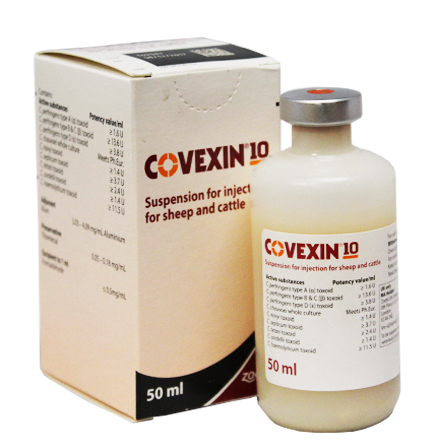
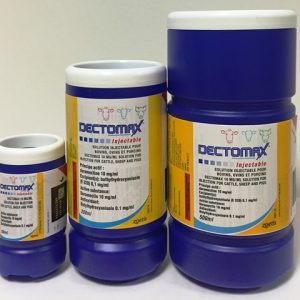
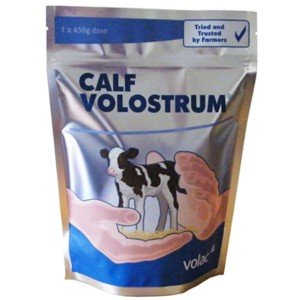
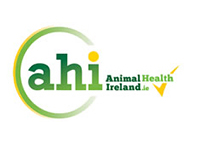
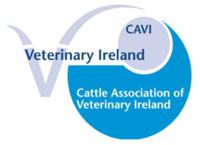


Reviews
There are no reviews yet.